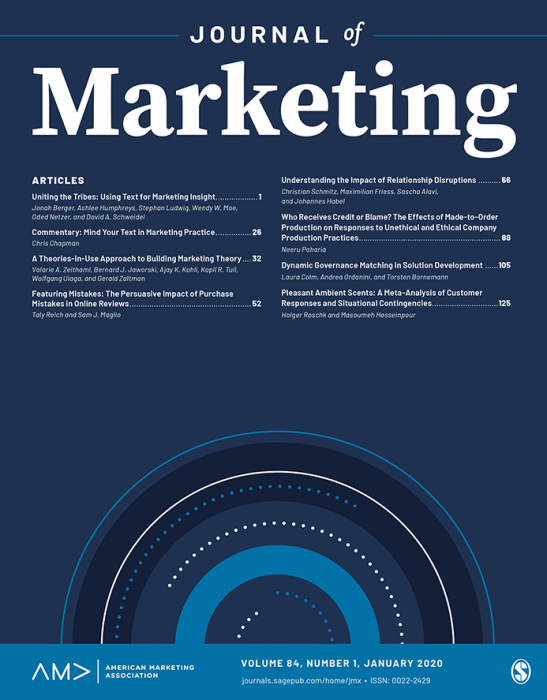强化捐赠机构以改善慈善捐赠:策略与异质性
IF 11.5
1区 管理学
Q1 BUSINESS
引用次数: 1
摘要
本研究探讨慈善机构是否可以通过增加捐赠者的代理感来提高筹款效率。本文介绍了两种策略,允许捐赠者通过选择选项(targeting-via-options)或通过建议捐赠金额(targeting-via-amount)来定位个人慈善项目。在一项涉及4万多名潜在捐赠者的大规模实地实验中,研究人员操纵了控制慈善机构资源分配的能力,结果发现,加强捐赠者代理能使筹款收入提高42%。因果森林分析表明,捐赠者具有显著的异质性,一部分捐赠者对目标捐赠的反应是普通捐赠者的三倍。不活跃的捐赠者,“笨拙的”捐赠者(他们的捐赠模式不均匀),以及在流行的捐赠期间集中捐赠的捐赠者对干预的反应较小,而频繁的,慷慨的,长期的捐赠者对干预的反应更大。三个实验提供了更强的内部有效性,关于操纵和过程证据,代理-而不是情感-负责增加的捐赠效应。优化分析为慈善机构如何利用这些见解来管理筹款活动以取得更大的成功提供了启示。本文章由计算机程序翻译,如有差异,请以英文原文为准。
Enhancing Donor Agency to Improve Charitable Giving: Strategies and Heterogeneity
This research investigates whether charities can enhance fundraising effectiveness by increasing donors’ sense of agency. This article introduces two strategies that allow donors to target individual charitable projects, either via the choice options (targeting-via-options) or via the suggested donation amounts (targeting-via-amounts). A large-scale field experiment involving more than 40,000 prospective donors manipulates the ability to control the allocation of the charity's resources and finds that enhancing donor agency boosts fundraising revenue by 42%. A causal forest analysis indicates significant donor heterogeneity, with a subset of donors being three times more responsive to the opportunity to target their gift than the average donor. Inactive donors, “clumpy” donors (who exhibit uneven donation patterns), and donors who concentrate their gifts during the popular giving periods are less responsive to interventions, whereas frequent, generous, and long-tenured donors are more responsive to them. Three experiments offer stronger internal validity regarding the manipulations and process evidence that agency—and not emotion—is responsible for the increased donation effects. An optimization analysis provides implications for how charities can leverage these insights to manage their fundraising campaigns to greater success.
求助全文
通过发布文献求助,成功后即可免费获取论文全文。
去求助
来源期刊

Journal of Marketing
BUSINESS-
CiteScore
24.10
自引率
5.40%
发文量
49
期刊介绍:
Founded in 1936,the Journal of Marketing (JM) serves as a premier outlet for substantive research in marketing. JM is dedicated to developing and disseminating knowledge about real-world marketing questions, catering to scholars, educators, managers, policy makers, consumers, and other global societal stakeholders. Over the years,JM has played a crucial role in shaping the content and boundaries of the marketing discipline.
 求助内容:
求助内容: 应助结果提醒方式:
应助结果提醒方式:


